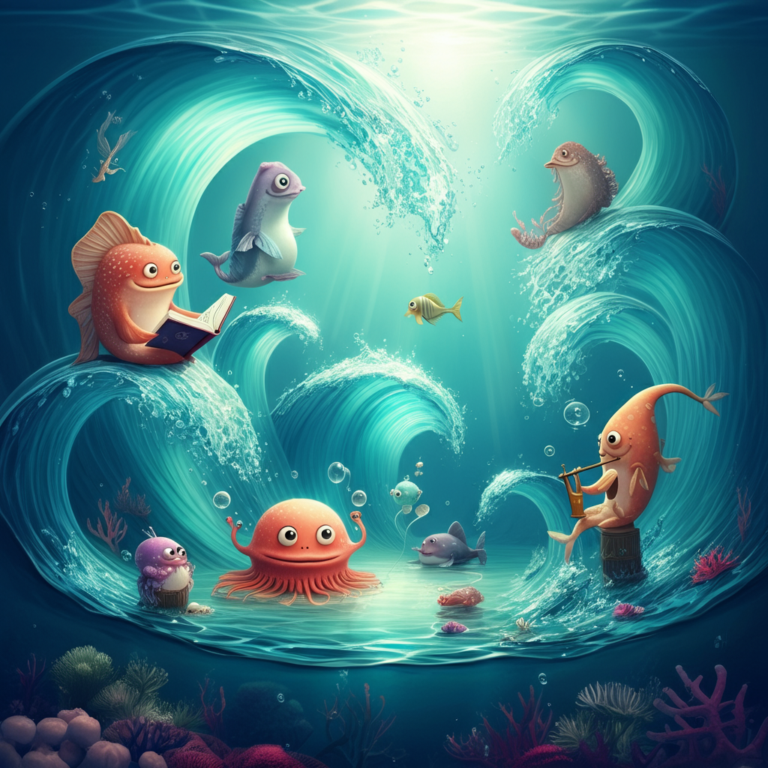Water is one of the most fascinating substances on Earth. It’s everywhere—filling our oceans, flowing through our bodies, and even decorating the rings of Saturn. But how much do we really know about this seemingly simple compound called H2O? From mind-bending molecular behaviors to its role in shaping life itself, water has secrets that might surprise you.
This blog uncovers 10 fun and slightly weird facts about water. Whether you’re a science enthusiast or simply curious about the world, you’ll never look at a glass of water the same way again.
Why Water Is Worth Exploring
Before we jump into the fun facts, it’s worth asking—a molecule as common as water, found in nearly every corner of our planet, can seem pretty mundane. Why study it? The truth is, water plays a vital role in the mechanics of life, industry, weather, and even space exploration. Plus, its complex behaviors and properties make it one of nature’s most unique chemicals.
Now, let’s explore what makes water so fascinating.
1. Water Is the Only Substance Found Naturally in Three States
Did you know that water can exist simultaneously as a solid, liquid, and gas? While most elements and compounds appear in only one or two states under natural conditions, water is an exception. For instance, at 32°F (0°C), you might see snow (solid), rain (liquid), and fog (gas) existing together, creating an amazing dance of all three forms.
This versatility is a result of water’s unique molecular structure and hydrogen bonds, which make transitions between states surprisingly easy under Earth’s atmospheric pressure.
Why It’s Important
This trait allows water to regulate temperature across Earth, ensuring a stable climate. It’s also the reason we experience weather phenomena such as clouds, precipitation, and freezing rain.
2. Water Is One of the Few Substances That Expands When It Freezes
Most substances shrink as they freeze, becoming denser. Water, however, defies this norm. When water drops below 39°F (4°C) and starts to freeze, it expands by about 9%. This is why ice floats on water—a property critical to life on Earth.
The Science Behind It
Hydrogen bonds rearrange themselves into a lattice structure during freezing, creating more space between molecules. This odd expansion prevents lakes from freezing solid, insulating aquatic life beneath the surface.
3. Water Molecules Stick Together – Literally
Water molecules are highly cohesive, meaning they stick to each other due to hydrogen bonding. This property is called cohesion and is responsible for effects like surface tension.
Fun Fact
Surface tension allows lightweight insects, like water striders, to walk across ponds without sinking—a small but fascinating demonstration of this molecular bond.
4. Cold Water Is denser than Warm Water
While ice floats, liquid water behaves differently. Cold water sinks because its molecules are packed more tightly together. However, once it freezes, it becomes less dense and rises to the top!
This property explains ocean currents, as cold water flows along the seafloor to replace warmer surface water that evaporated.
5. Humans Are Walking Water Tanks
Up to 60% of the human adult body is made of water. Your brain, specifically, is nearly 75% water—making hydration essential for sharp mental performance. Even slight dehydration can lead to fatigue and confusion.
Practical Tip
Adults need about 64 ounces (8 glasses) of water daily, though individual needs vary. Carrying a reusable bottle can prevent dehydration.
6. Water Boils Slower at High Altitudes
Heading up into the mountains? Your water will boil at a lower temperature than the standard 212°F (100°C). This is because atmospheric pressure decreases at higher elevations, reducing the energy needed for water molecules to escape and turn into vapor.
The Impact
This phenomenon might require slight recipe adjustments for mountain-based cooks. Higher boiling points may also explain why tea brewed at sea level often tastes different than tea prepared at altitude!
7. Water Is Transparent, but It’s Not “Colorless”
Despite its nickname as the “invisible liquid,” water absorbs light in the red end of the electromagnetic spectrum. This gives it a faint blue appearance in large quantities, such as lakes and oceans. It’s a feature caused by molecular vibration rather than the presence of pigments.
8. There’s More Freshwater in Glaciers than in Rivers
Earth’s freshwater is mostly locked away—not in rivers or lakes, but glaciers and polar ice caps. An astounding 68% of the planet’s unusable freshwater is frozen, while less than 1% is readily available for human consumption.
Why It Matters
Melting ice caps, due to climate change, are contributing to rising sea levels and freshwater shortages—a global challenge that demands our attention.
9. Water Is a Solvent, and It’s Called The Universal Solvent
Thanks to its polar nature, water can dissolve more substances than any other liquid. This is why it’s essential in biological systems, acting as a transport medium for nutrients, oxygen, and waste within cells.
Practical Example
Salt dissolving in water is a simple demonstration of water’s unique ability to break down ionic compounds.
10. There’s Water in Interstellar Space
Water isn’t just an Earth thing—it’s present in our galaxy, hidden in comets, moons, and even interstellar gas clouds. Recent research even found evidence of water ice on Mars, raising questions about the possibility of extraterrestrial life.
The Science
While extraterrestrial water isn’t immediately drinkable, its discovery on other planets fosters hope for future space exploration and colonization.
What These Fun Facts Teach Us About Water
From keeping humans hydrated to influencing weather and ecosystems, water is so much more complex than it seems. These properties—and the science behind them—demonstrate how water supports life and sustains our planet in countless ways.
Next time you drink a glass of water, take a moment to marvel at the strange yet wonderful behavior of this molecule we often take for granted.
Are there other fun water facts we’ve missed? Leave your thoughts in the comments. For more science-packed insights, subscribe to our newsletter today!





















0 Comments